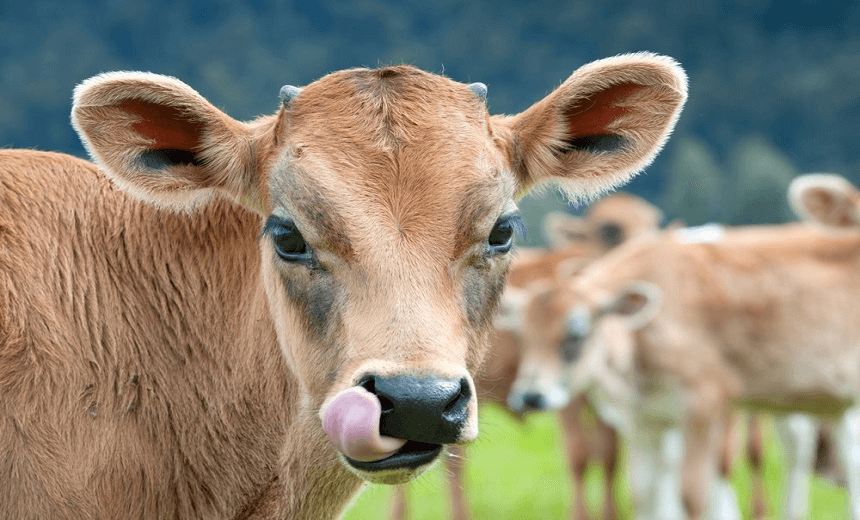One of the single biggest health issues facing the planet, antimicrobial resistance, is being tackled by vets in this country. NZ Veterinary Association head Mark Ward explains the steps being taken to severely curtail the use of antibiotics on pets and farm animals.
The World Health Organisation has named Antimicrobial Resistance (AMR) one of the greatest global health challenges we face. As is often the case with New Zealand, we are not being complacent. We want to do our bit and lead in our profession.
AMR is the ability of micro-organisms (including bacteria, viruses, and some parasites) to stop an antimicrobial drug (such as antibiotics, antivirals, and antimalarials) from working effectively.
It occurs when microorganisms such as bacteria, viruses, fungi and parasites change in ways that render the medications used to cure the infections they cause ineffective.
What does it mean for you and for the world? Well, standard medical treatments will become ineffective, infections persist, and they may spread. The most critical issue is in the resistance of highly infectious strains of bacteria to antibiotics. Health care professionals are left with limited or, in some instances, no available treatment options.
This is compounded by no new antibiotics being developed for use in humans or animals in the last 30 years.
In the past 60 years, science and technology has allowed for dramatic increases in food production from animals to meet the demands of consumers. This has included the use of antibiotics to treat and prevent disease.
But, the emergence of increasing levels of antimicrobial resistance now challenges these accepted practices, and emphasises the need to find alternatives to protect the efficacy of these important medicines while continuing to ensure animal wellbeing and the safety of our food.
In a recent review of antimicrobial resistance in the UK (published in 2014), it was revealed that an estimated 10 million extra deaths a year are predicted by 2050 if we don’t do something to stop antimicrobial resistance.
It will have a major effect on surgeries that have become entirely routine in many parts of the world but that depend on the availability of effective antibiotics to make them comparatively low risk.
When combined with the other effects of antimicrobial resistance, the world’s economy could lose more than 7% of its GDP by 2050.
It’s scary stuff. Much of the problem stems from misuse, using the wrong antibiotic, treating when no bacteria are involved, or not completing the course of a treatment.
So the New Zealand Veterinary Association is taking a position – a strong one.
Our goal: By 2030 New Zealand will not need antibiotics for the maintenance of animal health and wellness (also known as ‘non-medicinal use’).
It’s a lofty goal. But with such an important issue facing us, the NZVA, a not for profit organisation representing veterinarians had to act. We asked: How do we reduce our dependency on these critical medicines and preserve their use for as long as possible?
We knew that finding alternatives, lateral thinking, and collaboration would be key to finding solutions to antibiotic resistance.
The veterinary profession’s aspirational goal was launched in July 2015. We are working collaboratively with a range of organisations – the Ministry for Primary Industries, Ministry of Health, Dairy NZ, Agcarm (New Zealand Association for Animal Health and Crop Protection), Pork NZ and many others – to promote the responsible use of antibiotics in animals to ensure their continued effectiveness in safeguarding both animal and human health.
We’ve received strong support for our vision and are now exploring strategies to address antibiotic resistance – which could be an innovation opportunity for New Zealand.
A 2015 PwC report, commissioned by the NZVA, found that as one of the three lowest users of antibiotics to treat animals in the OECD, New Zealand could increase the value of its exports with reduced-antibiotic livestock systems and scientific innovations.
Very few public health issues are of greater importance than antimicrobial resistance in terms of their impact on society. Effective antibiotics have been a key factor in living longer and healthier. Without them we will lose global public health gains.
Addressing antimicrobial resistance is a community issue involving veterinarians, doctors, farmers, animal owners (pets and equine), and industry stakeholders. This is reflected by the theme of World Veterinary Day 2017 (today, April 29) – Antimicrobial Resistance: From Awareness to Action.
We all have to be aware that it is only through the careful use of antibiotics critical to human health that they will remain effective for treating infections. Therefore, prudent and responsible use of antimicrobials, whether for humans or animals, is essential.
Mark Ward is CEO of the New Zealand Veterinary Association
The Spinoff’s science content is made possible thanks to the support of The MacDiarmid Institute for Advanced Materials and Nanotechnology, a national institute devoted to scientific research.

